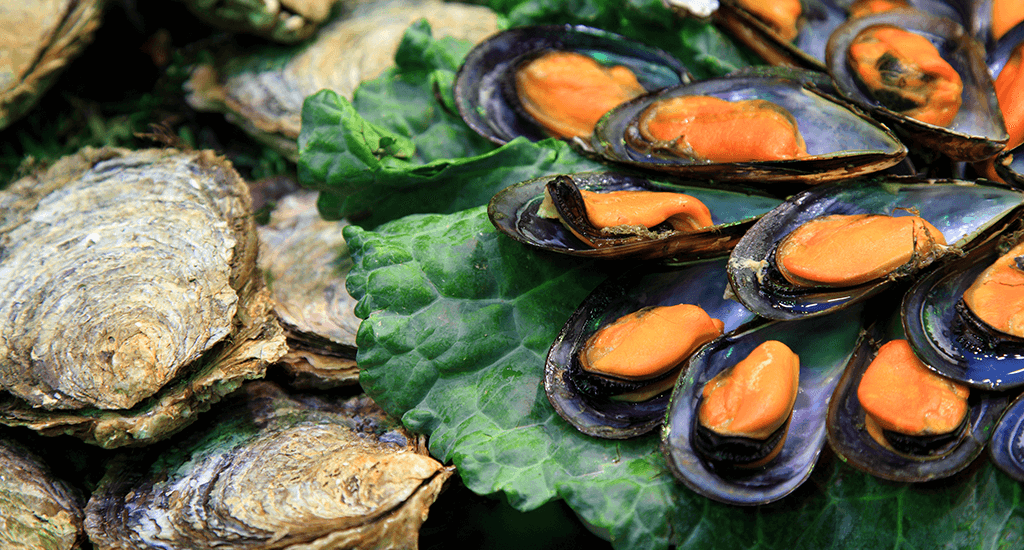bivalvegan

bivalvegan – sostantivo, aggettivo
ostrovegan – sostantivo, aggettivo
bivalveganism – sostantivo
ostroveganism – sostantivo
Almost all ostrovegans are also comfortable eating mussels, and many of them also eat scallops and clams.
Ostrovegan sounds like you’re a vegan who comes from the Austro-Hungarian Empire.
My family is newly ostrovegan.
I now live as a bivalvegan – although I do not eat all species of bivalve, for reasons that I will come to.
La popolarità del veganismo – sia per motivi di salute, etici o ambientali (o una combinazione dei tre) – sta crescendo esponenzialmente: si stima che nel Regno Unito ci siano oggi circa 3 milioni e mezzo di vegani, e il giro d’affari generato dagli alimenti vegani è di oltre mezzo miliardo di sterline l’anno. Inevitabilmente, sono spuntate diverse varianti di veganismo che, se da una parte sconcertano i vegani stricto sensu, concedono una certa flessibilità all’interno di un’alimentazione vegana. Un veggan, ad esempio, è un vegano che talvolta mangia uova, e un entovegan include insetti nella sua dieta. Una variante che sembra aver acquistato consensi e attirato l’attenzione dei media è l’ostroveganism, anche detto bivalveganism. Come s’intuisce facilmente, gli ostrovegans e i bivalvegans seguono perlopiù un’alimentazione vegana che però include frutti di mare, ovvero i molluschi bivalvi – alcuni consumano solo ostriche e cozze, altri anche vongole e capesante – adducendo come giustificazione che i bivalvi sono privi di sistema nervoso centrale e quasi sicuramente non provano dolore, argomento usato anche da quei vegani che ogni tanto si concedono un insetto…
Origini del termine
Sia ostrovegan che bivalvegan sono parole macedonia formate dall’aggettivo e sostantivo vegan e il sostantivo ostro (derivato dal latino ostrea, ostrica) e il sostantivo bivalve rispettivamente. Entrambi i termini sono stati popolarizzati dalla psicologa evoluzionista Diana Fleischman in un paio di post apparsi sul suo blog nel 2013.
Traduzione di Loredana Riu
bivalvegan – noun, adjective
ostrovegan – noun, adjective
bivalveganism – noun
ostroveganism – noun
Almost all ostrovegans are also comfortable eating mussels, and many of them also eat scallops and clams.
Ostrovegan sounds like you’re a vegan who comes from the Austro-Hungarian Empire.
My family is newly ostrovegan.
I now live as a bivalvegan – although I do not eat all species of bivalve, for reasons that I will come to.
Whether for environmental, ethical or health reasons (or a combination of all three) veganism is soaring in popularity. There are estimated to be around 3.5 million vegans in the UK, while the vegan food market is worth over half a billion pounds a year. Perhaps inevitably, variations of veganism have sprung up which, while they may dismay strict vegans who consume no animal products at all, allow people a degree of flexibility within a mainly vegan diet. So a veggan, for example, is a vegan who consumes some eggs, while an entovegan eats a diet that includes insects. One variation that has gained both popularity and media attention is ostroveganism, also called bivalveganism. As the name suggests, ostrovegans and bivalvegans largely follow a vegan diet while also consuming bivalves. Some restrict themselves to oysters and mussels, while others also eat clams and scallops. They do this on the grounds that these creatures lack central nervous systems and therefore almost certainly cannot feel pain. The same argument is used by those who favour including insects in a mostly vegan diet.
Origin
The terms ostrovegan and bivalvegan are blends formed from the adjective and noun vegan and either the noun bivalve or ostro- which comes from ‘ostrea’, the Latin word for oyster. Both terms were popularized by an evolutionary psychologist called Diana Fleischman in a pair of blog posts written in 2013.



